Английский язык для специальных и академических целей: Международные отношения и зарубежное регионоведение. Часть 1 - [76]
The ameliorative impulse is driving the liberal interventionism of the Obama administration. Like Wilson himself, Obama's Wilsonian officials believe that good things will follow if America maintains an expansive global presence in behalf of the good guys and against the bad guys. If we can just get rid of the tyrants, democracy and stability will follow. It never seems to do so, but that hardly constitutes a cause for any second thoughts on the part of these true believers.
The opposite of the ameliorative impulse is the tragic sense of life — the idea that mankind is flawed, that tyranny will always be with us, that human nature is fixed, and that utopian dreams centered on the ameliorative impulse will always come a cropper. A foreign policy emanating from this view of life focuses on the necessity of balancing power with power and rejects the idea that there is any culmination point in human development.
The other philosophical concept driving American foreign policy is the idea that America's post-Cold War mandate is to operate in the twenty-first-century world pretty much as it operated on the North American continent in the nineteenth century or as it burst onto the world scene at the dawn of the twentieth century. In a famous late-1990s article in the Weekly Standard, William Kristol and David Brooks promoted what they called “national greatness conservatism,” the central tenet of which seemed to be that the country didn't rise to sufficient grandeur to satisfy national aspirations. They called for a heightened sense of national purpose and, in its behalf, invoked the memory of Theodore Roosevelt, that brilliant and irrepressible warmonger of the day when America undertook to become an empire.
The Reader
Since then, Brooks has retreated to a certain circumspection on America's role in the world, but Kristol has indeed been a consistent latter-day TR, extolling every real and proposed American intervention since the morning of 9/11. His “national greatness conservatism” seems to have no governor on it.
But there is a flaw in equating such misadventures as the Iraq invasion with America's audacious actions in consolidating power upon the North American midsection or in kicking a corrupt and fading Spain out of the Caribbean and East Asia. The North American consolidation came at a considerable price, but the payoff was immense — a transcontinental nation facing two oceans and positioned to project power into both. The Spanish conflict carried hardly any price at all, but greatly enhanced America's global position. It's difficult to argue that those actions didn't further the country's national interest.
But how did America enhance its global position when it invaded Iraq.or contributed to the overthrow and death of Qaddafi.. .or got itself committed against both sides in the Syrian civil war?
So it isn't just Bush and Obama, or their minions, who have perpetrated so much foreign-policy incompetence over nearly a decade and a half. A major contributor has been a flawed outlook made up of two hopeless illusions — the ameliorative impulse and national greatness conservatism. So long as the American people permit their leaders to fashion the country's foreign policy based on those two illusions, the incompetence will continue.
http://www.ft.com/intl/cms/s/0/8f850056-38ee-11e4-a53b-00144feabdc0.html#axzz3MjIMJ7V7 By Edward Luce
September 14, 2014/The Financial Times
If you embark on something with your eyes half-open, you are likely to lose sight of reality
Few have given as much thought as Barack Obama to the pitfalls of waging open-ended war on an abstract noun. On top of its impracticalities — how can you ever declare victory? — fighting a nebulous enemy exacts an insidious toll. Mr Obama built much of his presidential appeal on such a critique — the global war on terror was eroding America's legal rights at home and its moral capital abroad. The term “GWOT” was purged the moment he took over from George W Bush. In his pledge last week to “degrade and ultimately destroy” the Islamic State in Iraq and the Levant, known as Isis, he has travelled almost full circle. It is precisely because Mr Obama is a reluctant warrior that his legacy will be enduring.
The reality is the US war on terror has succeeded where it was supposed to. Mr Bush's biggest innovation was to set up the Department of Homeland Security. If you chart domestic terror attempts in the US since September 11 2001, they have become increasingly low-tech and ineffectual. From the foiled Detroit airliner attack in Mr Obama's first year to the Boston marathon bombings in his fifth, each attempt has been more amateur than the last. The same is true of America's allies. There has been no significant attack in Europe since London's July 7 bombings nine years ago. Western publics have acclimatised to an era of tighter security.
The Reader
If this is the balance sheet of the US war on terror, why lose sleep? Chiefly because it understates the costs. The biggest of these is the damage an undeclared war is doing to the west's grasp on reality. Myopic thinking leads to bad decisions. Mr Obama pointedly avoided using the word “war” last week. Although there are more than 1,000 US military personnel in Iraq, and more than 160 US air strikes in the past month, he insisted on calling his plan to destroy Isis a “campaign”. Likewise, the US uniforms are those of “advisers” and “trainers”. These kinds of euphemism lead to mission creep. If you embark on something with your eyes half-open, you are likelier to lose your way.
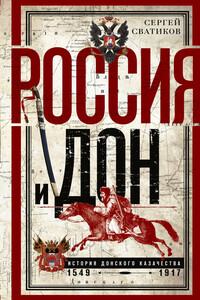
Предлагаем вашему вниманию адаптированную на современный язык уникальную монографию российского историка Сергея Григорьевича Сватикова. Книга посвящена донскому казачеству и является интересным исследованием гражданской и социально-политической истории Дона. В работе было использовано издание 1924 года, выпущенное Донской Исторической комиссией. Сватиков изучил колоссальное количество монографий, общих трудов, статей и различных материалов, которые до него в отношении Дона не были проработаны. История казачества представляет громадный интерес как ценный опыт разрешения самим народом вековых задач построения жизни на началах свободы и равенства.
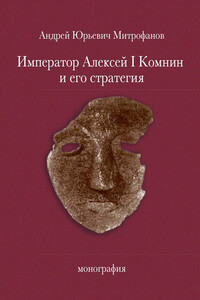
Монография доктора исторических наук Андрея Юрьевича Митрофанова рассматривает военно-политическую обстановку, сложившуюся вокруг византийской империи накануне захвата власти Алексеем Комнином в 1081 году, и исследует основные военные кампании этого императора, тактику и вооружение его армии. выводы относительно характера военно-политической стратегии Алексея Комнина автор делает, опираясь на известный памятник византийской исторической литературы – «Алексиаду» Анны Комниной, а также «Анналы» Иоанна Зонары, «Стратегикон» Катакалона Кекавмена, латинские и сельджукские исторические сочинения. В работе приводятся новые доказательства монгольского происхождения династии великих Сельджукидов и новые аргументы в пользу радикального изменения тактики варяжской гвардии в эпоху Алексея Комнина, рассматриваются процессы вестернизации византийской армии накануне Первого Крестового похода.
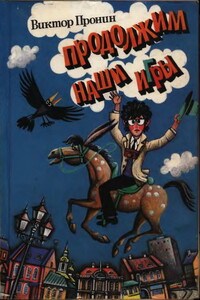
Виктор Пронин пишет о героях, которые решают острые нравственные проблемы. В конфликтных ситуациях им приходится делать выбор между добром и злом, отстаивать свои убеждения или изменять им — тогда человек неизбежно теряет многое.
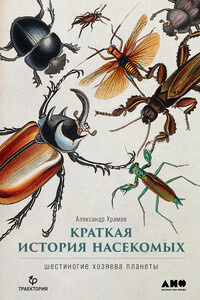
«Любая история, в том числе история развития жизни на Земле, – это замысловатое переплетение причин и следствий. Убери что-то одно, и все остальное изменится до неузнаваемости» – с этих слов и знаменитого примера с бабочкой из рассказа Рэя Брэдбери палеоэнтомолог Александр Храмов начинает свой удивительный рассказ о шестиногих хозяевах планеты. Мы отмахиваемся от мух и комаров, сражаемся с тараканами, обходим стороной муравейники, что уж говорить о вшах! Только не будь вшей, человек остался бы волосатым, как шимпанзе.
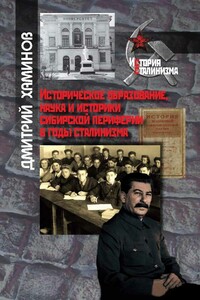
Настоящая монография посвящена изучению системы исторического образования и исторической науки в рамках сибирского научно-образовательного комплекса второй половины 1920-х – первой половины 1950-х гг. Период сталинизма в истории нашей страны характеризуется определенной дихотомией. С одной стороны, это время диктатуры коммунистической партии во всех сферах жизни советского общества, политических репрессий и идеологических кампаний. С другой стороны, именно в эти годы были заложены базовые институциональные основы развития исторического образования, исторической науки, принципов взаимоотношения исторического сообщества с государством, которые определили это развитие на десятилетия вперед, в том числе сохранившись во многих чертах и до сегодняшнего времени.
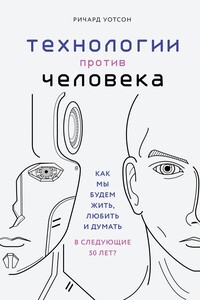
Эксперты пророчат, что следующие 50 лет будут определяться взаимоотношениями людей и технологий. Грядущие изобретения, несомненно, изменят нашу жизнь, вопрос состоит в том, до какой степени? Чего мы ждем от новых технологий и что хотим получить с их помощью? Как они изменят сферу медиа, экономику, здравоохранение, образование и нашу повседневную жизнь в целом? Ричард Уотсон призывает задуматься о современном обществе и представить, какой мир мы хотим создать в будущем. Он доступно и интересно исследует возможное влияние технологий на все сферы нашей жизни.